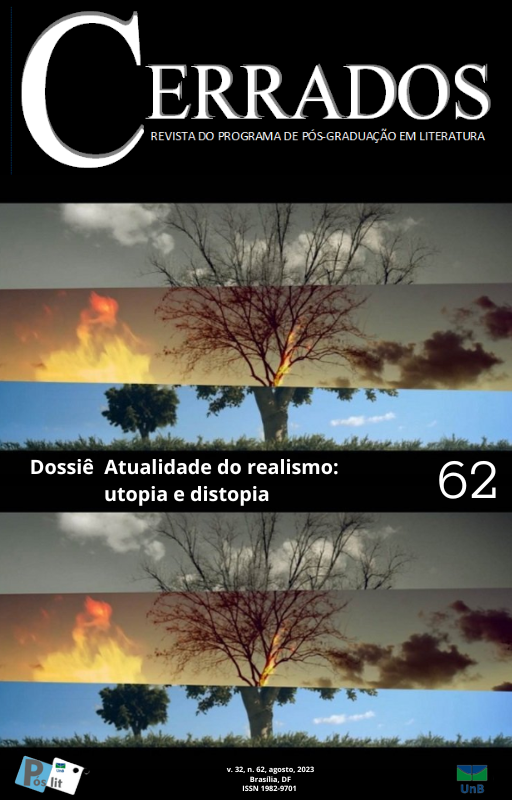Critical study - Grain: the poetics of bread and olive oil
the poetry of Walter Mancini
DOI:
https://doi.org/10.26512/cerrados.v32i62.50514Keywords:
poetry, I poetic, ManciniAbstract
The book, it would be better to say, the Work, by Walter Mancini is the product of gestation, birth, creation, and maturation, for at least fifty years were necessary to give birth to a poetry that does not contemplate a dozen poems or a few books of a hundred pages, but rather a true Complete Work, in the singular to express the particularity, which contemplates almost two thousand poems. We thus have an initial book of more than a thousand pages. Exceptional book, for it is the prince edition, at the same time the first book and the whole production that, for any poet, would be a pride. And that was the challenge to organize these book(s) without temporary basis, nor of approximations, nor of affinities or thematic identities. A universe to be organized. And to have a beginning, no matter how difficult, a simple achronological organization was sought, an inventory, where the poems were superimposed to make, in their organizations, the format of a book. Thus, the reader has something unusual in his hands. It is a set that goes beyond what the meaning of the noun book can expose. All the production that, for decades, was shelved, now appears in its fullness, from beginning to end, front and back and also in its reverse, for reading.
Downloads
References
HUIDOBRO, V. Altazor. Madri: Cátedra, 2005.
DRUMMOND, C. Antologia Poética. Rio de Janeiro: Record, 2010.
FRIEDRICH, H. Estrutura da Lírica Moderna. São Paulo: Duas Cidades, 1978.
LÉVI-STRAUSS, C. O Cru e o cozido. São Paulo: Cosace Naify, 2004.
Downloads
Published
How to Cite
Issue
Section
License
Copyright (c) 2023 Revista Cerrados

This work is licensed under a Creative Commons Attribution 4.0 International License.
Proibida a reprodução parcial ou integral desta obra, por qualquer meio eletrônico, mecânico, inclusive por processo xerográfico, sem permissão expressa do editor (Lei n. 9.610 de 19/2/1998 )



